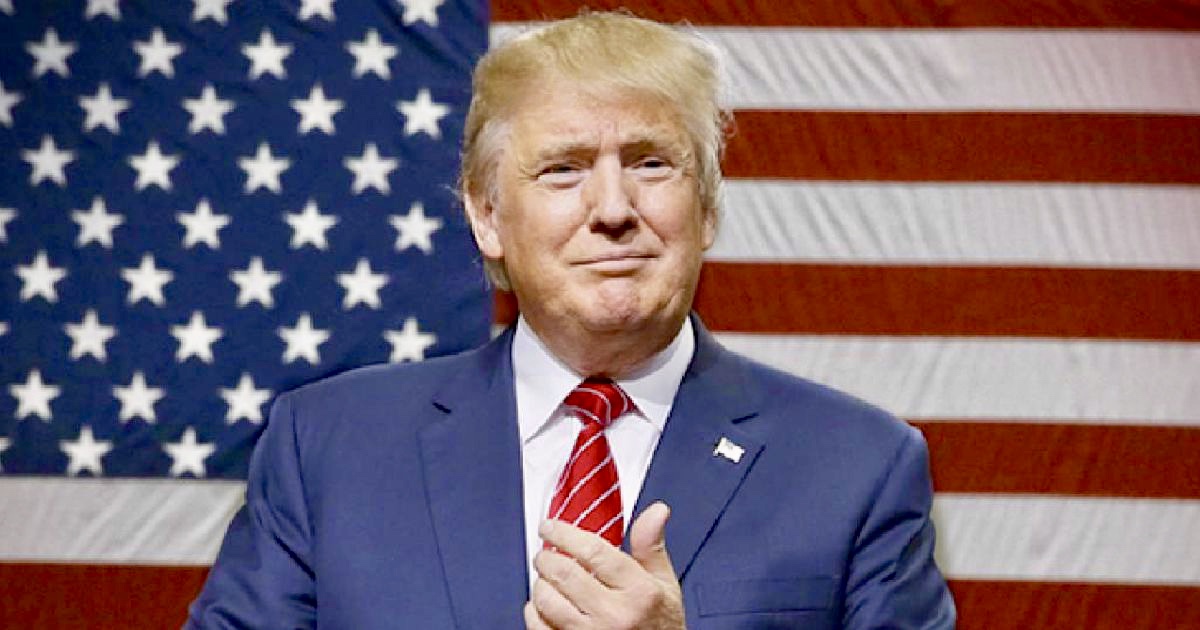by Nathan Rybner
Why should Americans expect a Trump victory in 2020, when the polls make it seem like a Biden victory looks so certain?
Models and historical precedence.
There are many models and predictors people use when predicting presidential elections. The key ones (pun not intended) are the 13 keys, the Helmut Norpoth Model, the enthusiasm advantage statistics, and yes, even the S&P 500.
The one feature here that might have caught your mind the most, was the mention of the S&P 500 index. Since 1984, the S&P 500 is 9 for 9 when it comes to predicting presidential elections in the United States. For this predictor, we start with precisely three months before Election Day, and we record that date, along with what the index is at one that particular date. If on Election Day, the index is up by any margin, the incumbent party maintains control of the White House.
The index a week before the election is up approximately 3% from that marked date. The Friday before Election Day, the index was down .75%, however if a weekend boost pushes Trump into the positive territory, this will bode extremely well for him.
The enthusiasm percentage has also served as an indicator since 1984. Whichever candidate has had a higher enthusiasm percentage for their candidate, has won. As it stands right now, the incumbent is winning in that category by double digits.
The Helmut Norpoth Model has predicted 25 of the last 27 presidential elections, and the only elections he got wrong were nail-biters, the elections of 1960 and 2000. Helmut Norpoth has based his model on early primary turnout, and he makes his prediction in March of every election year. In 2016, he had Donald Trump at an 87% chance of winning the election, and in 2020 he has him at 91% chance of victory.
Norpoth’s model insists that the early primary results are extremely important indicators of who will win. In 2016, Donald Trump secured the nomination much earlier than Hillary Clinton had. In the 2020 Republican presidential primaries, President Trump had 93.99% of the vote and no serious competition. He won every primary, swamping a weak challenge from former Massachusetts Governor Bill Weld who won 1 delegate in Iowa, had his best performances in New England, where he still didn’t even break 15%.
President Obama, for perspective, won his primaries with 88.9% of the vote, and a third of the raw vote total compared to Trump’s 2020 numbers. President Obama also only narrowly defeated Keith Judd, a convicted felon who was serving time in a Texas prison for “mailing a threatening communication with intent to extort money or something of value”, in the 2012 West Virginia primary by a margin of 59-41%.
Alan Lichtman’s 13 Keys are given notice by major networks every election season, so let’s take a look at them. The major premise of Litchman’s model is that 13 keys determine whether the White House changes party hands. For the incumbent party to win, the candidate must meet 8 of these standards, or more.
The 13 keys are:
Party Mandate: After the midterm elections, the incumbent party holds more seats in the U.S. House of Representatives than after the previous midterm elections.
Republicans lost the House, so this is a key favoring Biden.
Biden: 1
Trump: 0
Contest: There is no serious contest for the incumbent party nomination.
Trump faced no serious opponent for his party nomination.
Biden: 1
Trump: 1
Incumbency: The incumbent party candidate is the sitting president.
President Trump is still in office.
Biden: 1
Trump: 2
Third party: There is no significant third party or independent campaign.
There is no significant third party challenger in the 2020 presidential election.
Biden: 1
Trump: 3
Short-term economy: The economy is not in recession during the election campaign.
Due to the COVID19 pandemic, the economy is in recession.
Biden: 2
Trump: 3
Long-term economy: Real per capita economic growth during the term equals or exceeds mean growth during the previous two terms.
The same answer as before, despite being the pandemic, Trump’s economic growth was only .3% better than under Obama.
Biden: 3
Trump: 3
Policy change: The incumbent administration affects major changes in national policy.
President Trump has passed tax reform, criminal justice reform, among other major legislation that has been enacted.
Biden: 3
Trump: 4
Social unrest: There is no sustained social unrest during the term.
There have been major riots in major cities under President Trump in part due to Black Lives Matter.
Biden: 4
Trump: 4
Scandal: The incumbent administration is untainted by major scandal.
Regardless of your opinions on it, the President was impeached, so that is a negative mark for him.
Biden: 5
Trump: 4
Foreign/military failure: The incumbent administration suffers no major failure in foreign or military affairs.
Under President Trump, the ISIS caliphate is no more, and we are bringing troops home from Afghanistan.
Biden: 5
Trump: 5
Foreign/military success: The incumbent administration achieves a major success in foreign or military affairs.
President Trump has been signing historic peace treaties between Israel and Islamic countries in the Middle East over the last few weeks, that even a Trump critic, former Florida Governor Jeb Bush applauded it, although he still won’t endorse the President.
Biden: 5
Trump: 6
Incumbent (party) charisma: The incumbent party candidate is charismatic or a national hero.
President Trump is an extremely charismatic leader who hosts rallies that have multiple mile-long lines to get in, with tens of thousands of attendees.
Biden: 5
Trump: 7
Challenger (party) charisma: The challenging party candidate is not charismatic or a national hero.
Former Vice President Joe Biden recently had an event where he had 0 attendees, and even with national icons like Senator Bernie Sanders and former President Barack Obama, he still can’t attract a crowd larger than a hundred.
Biden: 5
Trump: 8
In this model, President Trump hits the required 8 to win re-election.
With all these indicators and predictors, except for the polls, every other metric is pointing to a Trump victory. But the advice I can give to you all:
VOTE!!!
Sources:
Link 2: https://www.google.com/finance/quote/.INX:INDEXSP
Link 3: http://primarymodel.com/
Link 4: https://www.ncbi.nlm.nih.gov/pmc/articles/PMC349231/





3 comments
… [Trackback]
[…] Here you can find 30150 more Information to that Topic: thelibertarianrepublic.com/opinion-13-keys-that-determine-who-will-win-the-presidency-in-2020/ […]
… [Trackback]
[…] Info on that Topic: thelibertarianrepublic.com/opinion-13-keys-that-determine-who-will-win-the-presidency-in-2020/ […]
… [Trackback]
[…] Read More Information here to that Topic: thelibertarianrepublic.com/opinion-13-keys-that-determine-who-will-win-the-presidency-in-2020/ […]